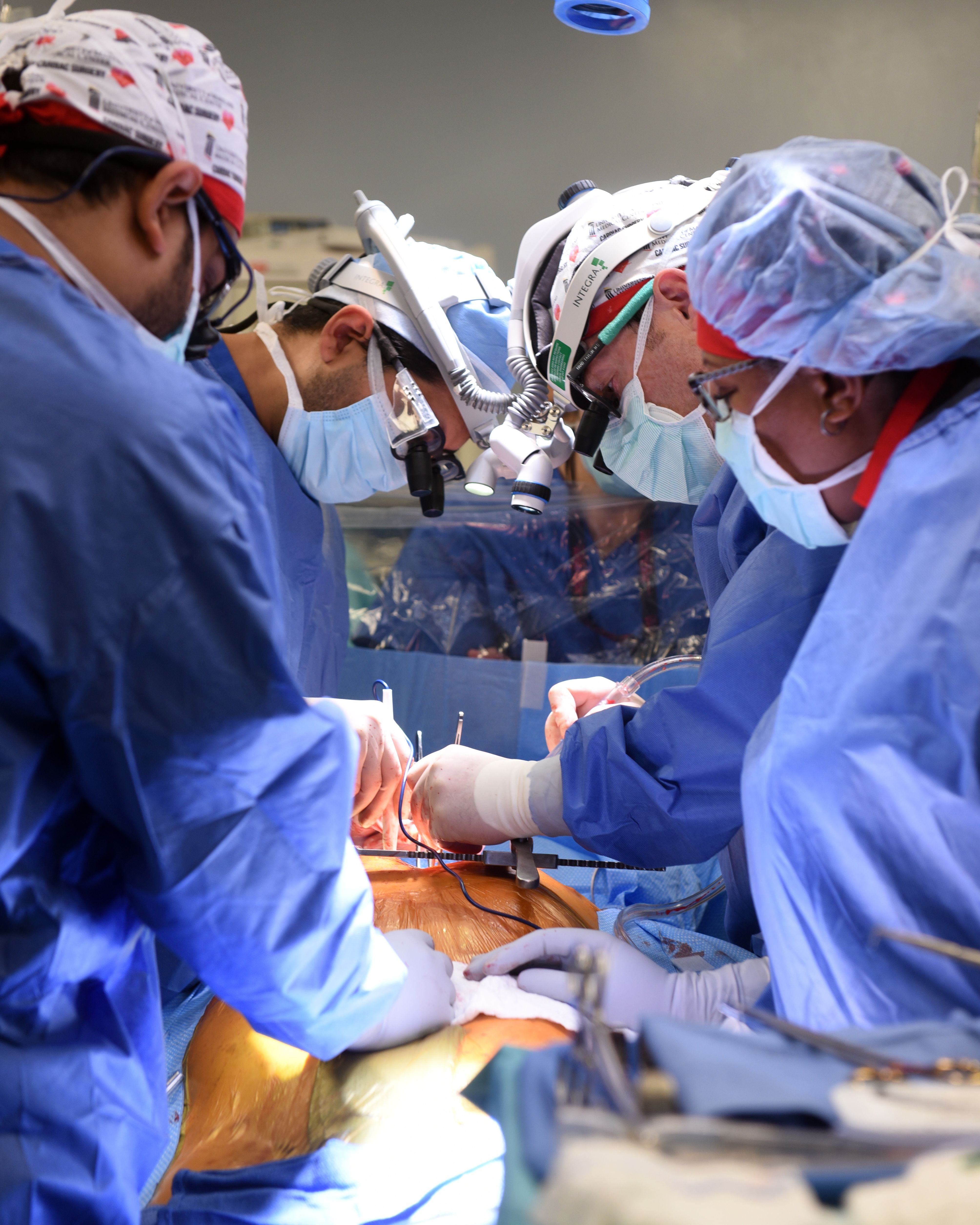‘Still some way to go before pig heart transplant becomes everyday reality’
Genetically modified pigs could potentially offer a much-needed supply of organs for patients

Your support helps us to tell the story
From reproductive rights to climate change to Big Tech, The Independent is on the ground when the story is developing. Whether it's investigating the financials of Elon Musk's pro-Trump PAC or producing our latest documentary, 'The A Word', which shines a light on the American women fighting for reproductive rights, we know how important it is to parse out the facts from the messaging.
At such a critical moment in US history, we need reporters on the ground. Your donation allows us to keep sending journalists to speak to both sides of the story.
The Independent is trusted by Americans across the entire political spectrum. And unlike many other quality news outlets, we choose not to lock Americans out of our reporting and analysis with paywalls. We believe quality journalism should be available to everyone, paid for by those who can afford it.
Your support makes all the difference.There is “still some way to go” before pig organs are routinely used in transplants, NHS officials have said.
Medics in the US made history last week when they transplanted a pig heart into a human patient with terminal heart disease.
The pig was genetically engineered so its organs could survive in a human body.
Health officials in the UK have kept track of the landmark surgery which could one day allow more patients to benefit from transplant.
Commenting on the surgery, a spokesman for NHS Blood and Transplant said: “We are always interested in new research that may allow more patients to benefit from transplant in the future. While transplant operations carried out today are very successful; there are still not enough donor organs to help all those in need.
“Recently, through the culmination of years of research, we have seen some important steps forward, and this latest development makes the possibility of transplantation between animals and humans a potentially safe and ‘attainable’ future treatment option. However, there is still some way to go before transplants of this kind become an everyday reality.
“We congratulate the team who have successfully carried out this operation and our thoughts are with the patient and their family in the days to come.
“While researchers and clinicians continue to do our best to improve the chances for transplant patients, we still need everyone to make their organ donation decision and let their family know what they want to happen if organ donation becomes a possibility.”
The surgery at the University of Maryland Medical Centre in Baltimore last Friday took seven hours.
Four days on, patient David Bennett is said to be doing well and is breathing on his own without a ventilator.
The 57-year-old was not eligible to be put on the transplant list and is said to have thought that medics were joking when the operation was initially proposed.
Doctors have said the transplant shows that a heart from a genetically modified animal can function in the human body without immediate rejection.
Mr Bennett will be carefully monitored in the coming days and weeks.
“It was either die or do this transplant,” said Mr Bennett.
“I want to live. I know it’s a shot in the dark, but it’s my last choice.”
Cross-species transplantations offers the prospect of an unlimited supply of organs and cells for transplantation and could potentially resolve issues over shortages of donors.
Many attempts at such transplants – or xenotransplantation – have failed, largely because patients’ bodies rapidly rejected the animal organ.
This time scientists in the US used a heart from a pig that had undergone gene-editing to remove a sugar in its cells that is believed to be responsible for hyper-fast organ rejection.
Surgeon Bartley P Griffith, who carried out the transplant, said: “This was a breakthrough surgery and brings us one step closer to solving the organ shortage crisis.
“There are simply not enough donor human hearts available to meet the long list of potential recipients.
“We are proceeding cautiously, but we are also optimistic that this first-in-the-world surgery will provide an important new option for patients in the future.”
Around 6,000 people are waiting for a transplant in the UK, according to NHSBT figures from November, including around 200 children.